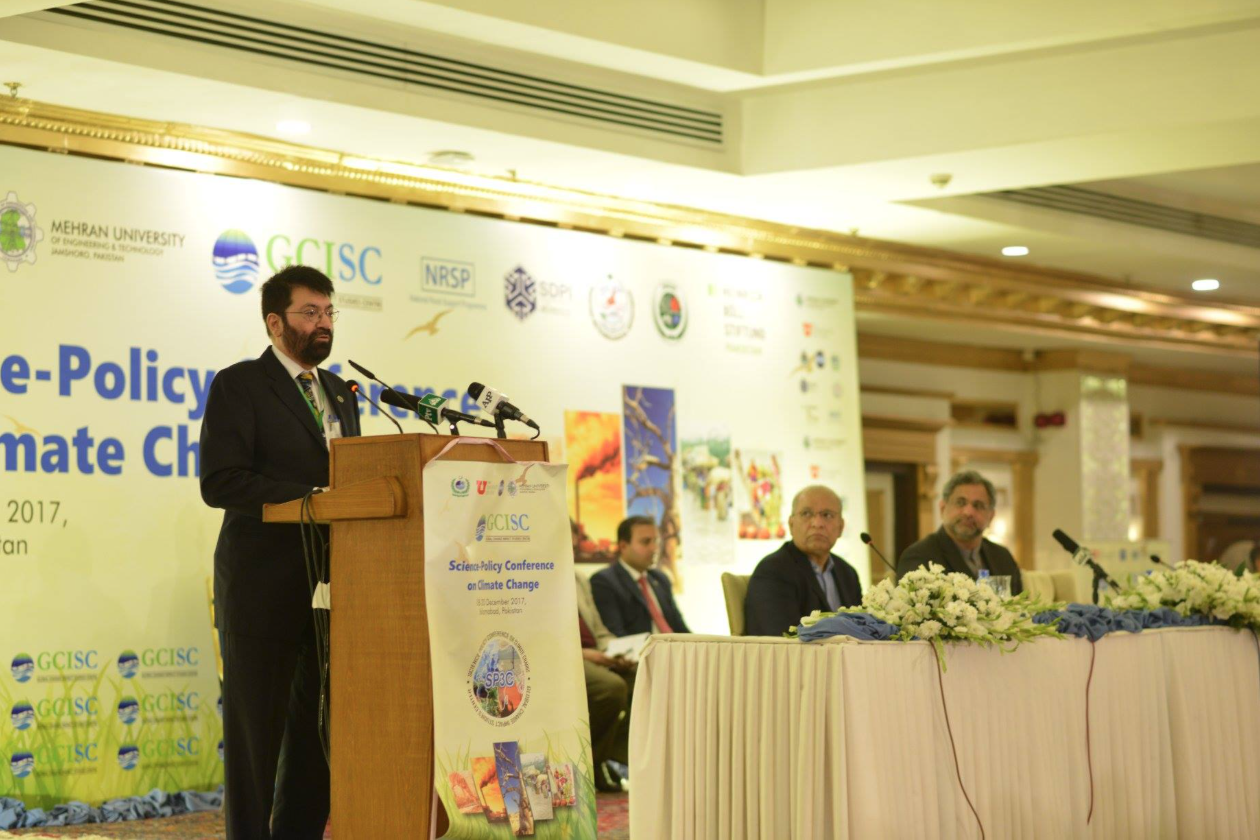
This last December more than 800 scientist, policy makers, lawyers, academics, and activists assembled in Islamabad, Pakistan, for the first annual International Science-Policy Climate Change Conference. The event was organized by Pakistan’s leading climate change research center, the Global Change Impact Studies Centre (GCISC), and was the brainchild of University of Utah professor Tariq Banuri. Professor Banuri took a semester sabbatical from the U to serve as acting director of the GCISC.
One of Professor Banuri’s chief priorities for the GCISC was to take an inventory of the collective academic research taking place on climate change in Pakistan. The December conference started with a call for research papers. The staff at the GCISC were expecting a few dozen submissions. They received over three hundred. Banuri knew he was onto something. “Climate change is not a political issue in Pakistan,” he observes. “There is a broad consensus of the serious threat it poses to the region.”
A focus of the conference was to make connections between climate change and its effects on a variety of vital national interests, including: water and food security, energy production, and public health. Banuri, who at the U serves as the associate director of the U.S.-Pakistan Centers for Advanced Studies in Water (USPCASW), emphasized the importance of studying and understanding the linkage between climate change and water security. “There is a strong linkage between climate change and water security,” explains Banuri. “In Pakistan we see glacier and rainfall patterns are changing. We are experiencing temperature extremes.” These changes are having a direct impact on the reliability and predictability of the country’s water supply.
The USPCASW took a leading role at the conference in addressing the issue of water security. Established in 2015 with the support of a grant from USAID, the USPCASW is a strategic partnership between the University of Utah and Mehran University of Engineering and Technology in Pakistan. The goal of the program is to train and build up the capacity of Pakistan’s next generation of water professionals. Several of the U’s leading researchers contributed to the conference, including Steve Burian, the director of the USPCASW. Professor Burian noted at the conference the importance of building international partnerships in addressing global issues like climate change. “Today’s conference is about building relationships. I believe you are here because of a relationship you have with someone in Pakistan working on climate change solutions. You are here to build on that relationship, and help address the challenges of developing climate solutions for Pakistan.”
The International Science-Policy Climate Change Conference will become an annual event, and Professor Banuri is optimistic that one lasting outcome from the conference will be that many of the research papers will be published in academic journals. “The research coming out of the conference can provide a baseline for future research initiatives to build upon.”
